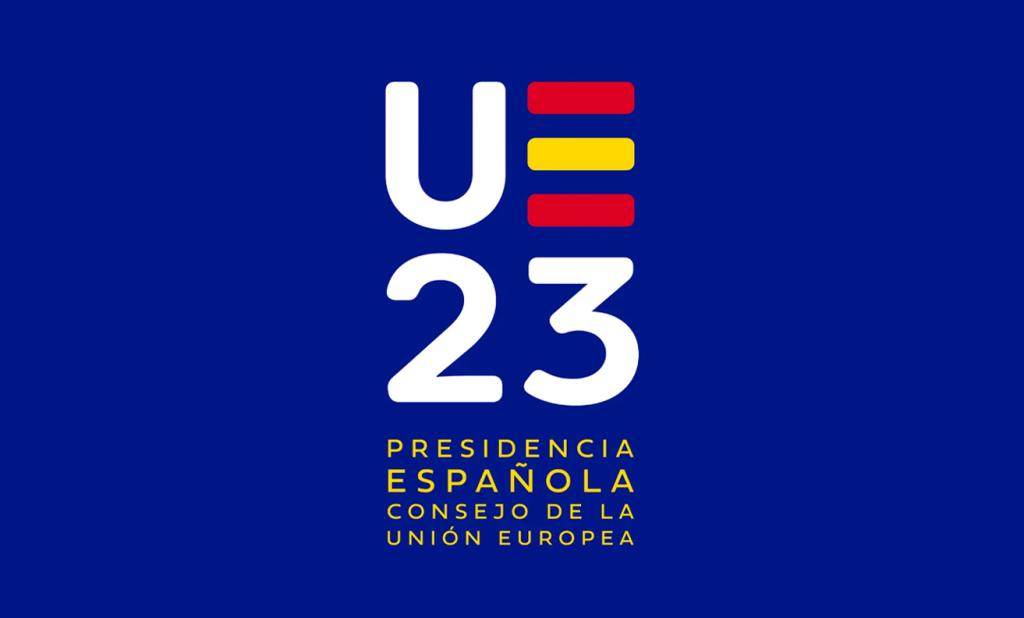EUSPA welcomes the Spanish Presidency of the Council of the European Union

As Spain takes over the Presidency of the Council of the European Union on 1 July, it has announced its key priorities for the semester.
“We are going to promote the reindustrialisation and digitalisation of Europe, we are going to make decisive progress in this ecological transition, we will make the economy more prosperous but also fairer, and we will strengthen European unity with new tools and new agreements,” says President of the Government of Spain Pedro Sánchez.
By fostering the development of an innovative, competitive and independent space sector, the EU Space Programme is set to contribute to each of the priorities set by the Spanish Presidency – all while reinforcing the EU’s autonomy, resilience and democratic principles.
“As the host of our European GNSS Service Centre and one of our Galileo Security Monitoring Centre, Spain is already very familiar with the EU Space Programme and EUSPA looks forward to building on this relationship during the Spanish Presidency,” adds EUSPA Executive Director Rodrigo da Costa.
Reindustrialise the EU and ensure its open strategic autonomy
EU Space is a key enabler of European competitiveness. With an approximate 25% market share, Europe currently enjoys a strong position within the global GNSS downstream market – a market that is forecasted to see revenues reach EUR 510 billion by 2032. Europe is also seeing a vibrant Copernicus start-up scene unfolding, with hundreds of new ventures being created using Copernicus data and information.
But success in the space and tech sectors also translates to the renewed competitiveness of such legacy industries as raw materials and energy. For example, the raw materials sector already leverages the benefits of GNSS and Earth Observation for everything from exploration to site approval, construction, operations and closure, helping European industry achieve the rare earth independence envisioned by the European Critical Raw Materials Act.
On the energy side, EU Space is set to be a key enabler of Europe’s energy transition. While Europe may lack fossil fuel resources, it has no shortage of natural resources like sunshine and wind. Using EU Space, the energy sector can choose the best location for the wind turbines, solar panels and smart grids needed to produce home grown renewable energy right here in the EU.
“With the support of the EU Space Programme, which was conceived as a means of advancing European autonomy in space, we can build the renewable energy system that will power an energy independent and climate neutral future for Europe,” explains da Costa.
Advance the green transition and environmental adaptation
Speaking of a climate neutral future for Europe, EU Space is also well-positioned to support the Spanish Presidency’s environmental priorities. In addition to driving the transition to clean energy, Copernicus and Galileo offer a host of services to help monitoring ecosystems and biodiversity, climate resilience with everything from industrial waste management to wildlife monitoring, urban planning, smart mobility and fleet management.
The Spanish Presidency has specifically made the reduction of electricity prices part of its green priorities. A good place to start is by renovating Europe’s many inefficient buildings and homes – and Copernicus can help. The Copernicus Atmosphere Monitoring Service helps monitor emissions in residential areas of cities, providing urban planners with the information they need to focus on renovating the worst-performing buildings first.
Promoting greater social and economic justice
Not only will energy efficient building renovations help lower energy bills, they are also a front-line defence against energy poverty. Defined as when a household suffers from inadequate energy services, energy poverty impacts an estimated 35 million European citizens.
“By enabling energy-efficient home renovations and facilitating the construction of more efficient energy infrastructure, EU Space plays a crucial role in ensuring that Europe's green transformation is inclusive and leaves no one behind," adds da Costa.
This highlights how EU Space can support the Spanish Presidency’s priority of promoting greater social and economic justice – a priority that aims to ensure everyone benefits from Europe’s competitiveness and success, including people with disabilities.
Here too EU Space can help. Take for example the Galileo High Accuracy Service, which is set to improve urban navigation and wayfinding for people with disabilities. Companies are also leveraging the precise positioning offered by Galileo and EGNOS to develop innovative applications to help, for instance, the visually impaired navigate through busy city centres and safely use public transport.
Strengthening European unity
In a world of challenges and growing tensions, the EU must remain united. “In a geopolitical context marked by uncertainty, Europe must become an area of certainties, in which material welfare, freedom and democracy pave the way for the future of all people,” says Sánchez.
To help, the Spanish Presidency looks to develop the tools Member States and citizens need to face these uncertainties together.
“At its heart, the EU Space Programme is a programme built by Europe, for Europe,” concludes da Costa. “Whether it be boosting Union’s competitiveness, supporting its energy independence, mitigating the effects of climate change, protecting citizens from security threats and natural disasters, or simply keeping us connected with one another, EU Space is a key tool for maintaining a united and thriving Europe.”
Media note: This feature can be republished without charge provided the European Union Agency for the Space Programme (EUSPA) is acknowledged as the source at the top or the bottom of the story. You must request permission before you use any of the photographs on the site. If you republish, we would be grateful if you could link back to the EUSPA website (http://www.euspa.europa.eu).